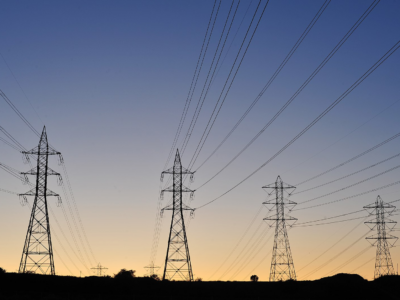Tough Political Choices On Climate Are Hardly Unique to U.S: The Case of Germany and Nuclear Power
German Chancellor Angela Merkel made headlines this week when she announced that the country would phase out its nuclear power plants by 2022. The Fukishima nuclear crisis in Japan led Germany to review its reliance on nuclear power and the result of that review was Merkel’s decision to shut down the country’s existing plants.
Here’s the problem from a greenhouse gas emissions perspective. Phasing out nuclear makes it much more difficult — maybe even impossible — for Germany to meet its climate change goals. Nuclear power emits zero emissions. Germany currently gets almost a quarter of its electricity from nuclear power. The country has committed to reducing its greenhouse gas emissions to 20 percent below 1990 levels by 2020. Germany has also committed to increasing its reliance on renewable energy to 35 percent of its electricity by 2020. The 35 percent goal is an ambitious one even in a country that already provides an impressive 17 percent of its electricity from renewable sources.
The problem, as spelled out in detail in a Breakthrough Institute blog, is that now Germany’s decision to phase out nuclear means that it must replace a large portion of its zero emitting energy (nuclear) with something else. If that something else is renewable, the 35 percent goal by 2020 will be far too low and will need to be closer to 50 percent. A 50 percent goal will require a massive push to essentially triple Germany’s renewable supply in less than a decade. Germany could also vastly improve energy efficiency to meet part of that goal but as the Breakthrough Institute notes, the country’s climate plan already includes ambitious energy efficiency goals that would have to ramp up even further. If Germany decides instead to replace its nuclear plants with carbon-based (natural gas or coal) electricity it’s hard to see how the country meets its climate goals. Germany is already quietly proposing numerous new coal fired power plants and the pressure to approve even more is certain to grow with the phase out of nuclear.
The long and the short of it is that Merkel’s decision to address one environmental concern — the dangers of nuclear power — will have dramatic consequences on another major environmental problem, climate change. And her decision illustrates just how difficult addressing the problem of climate change is politically even in a country that has shown significant leadership in addressing greenhouse gases. The decision also demonstrates the very difficult environmental tradeoffs we face in trying to satiate our demand for energy. Nuclear power obviously creates massive environmental risk, as the Fukishima catastrophe demonstrates. But coal fired power plants are no environmental picnic, not just because of the greenhouse gases and more traditional pollutants they emit but also because the mining of coal is one of the riskiest and most dangerous businesses around. Renewable energy sounds like the magic bullet but getting to 50 percent renewable energy in just a decade requires a transformation in the energy system that will be massively expensive and technologically extremely difficult.







Reader Comments